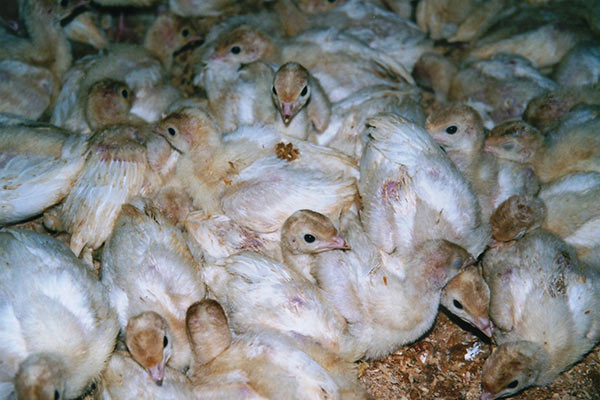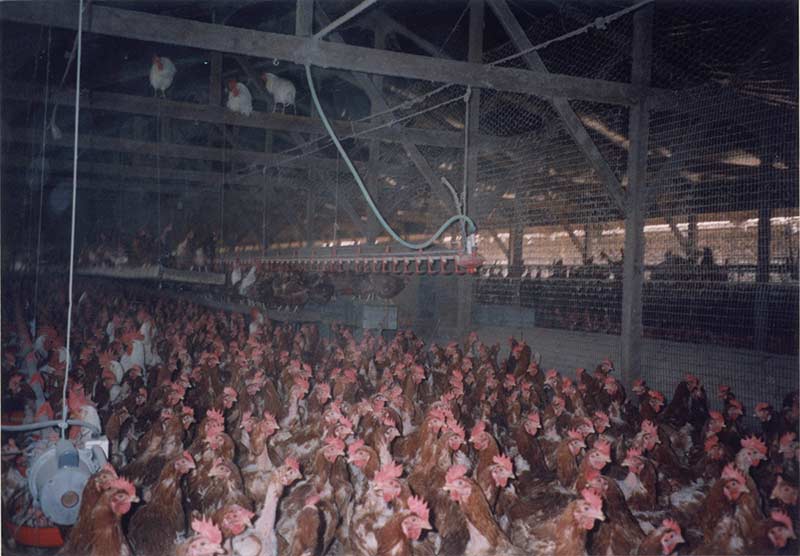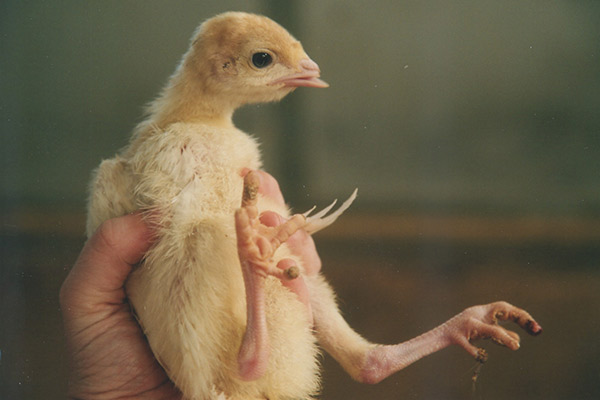Many people are considering free-range products as an alternative to factory-farmed animal products. But before you consider any particular farm to cause significantly less suffering for the animals, please investigate it and the slaughterhouse at which the animals are killed.

Poultry meat may be labeled “free-range” if the birds were provided an opportunity to access the outdoors. No other requirements – such as space given to birds inside, the amount of time spent outdoors, or the quality and size of the outdoor area – are specified by the USDA. (1)
Department of Agriculture says the term ‘free range’ or ‘free roaming’ can be used to describe poultry that ‘has been allowed access to the outside.’ Such a loose definition, without a government standard, leaves lots of room for interpretation. As long as a bird has outdoor access, it can live in a warehouse-style shed with 20,000 other birds and still be labeled ‘free range.’
The free-range label applies only to birds raised for meat, not eggs. There is a cage-free label for eggs; but it is not regulated by the USDA, nor does it guarantee that the hens were provided access to the outdoors. Neither label requires third-party certification. Even for USDA Organic, the most extensively regulated label, minimum levels of outdoor access have not been set and specific rules do not apply to stocking density or flock size. (1)
In 2003, the Oakland Tribune wrote in their article, How one egg farmer has gone cage-free for 20 years, “Steve Mahrt, self-proclaimed ‘head chicken farmer’ and owner of Petaluma Farms, has been selling fertile, cage-free and organic eggs to West Coast consumers for 20 years.… ‘We’re the original, free-ranging chicken people,’ says Mahrt, a former California Egg Commission chairman.” Below is a picture taken at Mahrt’s free range farm.

Even when a farm appears to be taking better care of their animals, there can be hidden cruelty, such as at Bell & Evans which was found to be grinding baby chicks alive in the below 2013 Compassion Over Killing undercover video.
Female chicks, whether destined for cages or not, are typically debeaked at the hatchery. Turkeys raised on free-range farms are often subjected to debeaking and toe trimming such as the baby turkey below.

Free-range and cage-free farms vary greatly, and while they may be an improvement over conventional farms, they are by no means free of suffering. Visiting the farms and slaughterhouses is the only way to know how the animals are being raised and killed before the meat hits your plate.
Reference
1. USDA ERS, Outlook Report No. LDP-M-150-01, December 2006.